It was built from October to November 2007. It wasn’t easy.
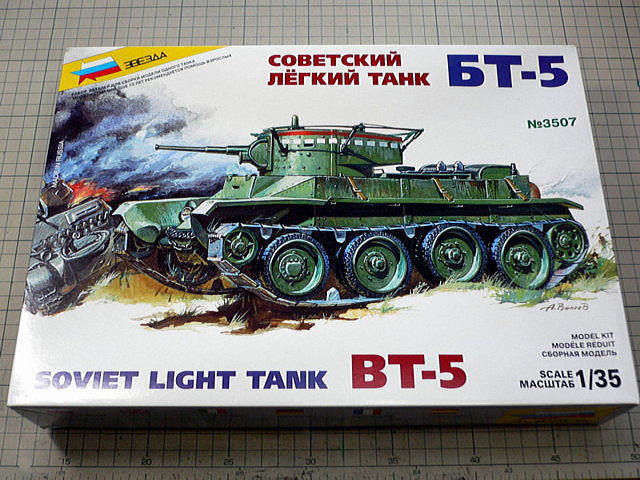 It’s an ancient kit; on the back of the chassis, there’s a mold “ZVEZDA, Russia.” I heard this kit is easy to assemble even though Eastern European kits are challenging.
It’s an ancient kit; on the back of the chassis, there’s a mold “ZVEZDA, Russia.” I heard this kit is easy to assemble even though Eastern European kits are challenging.
(2007/10/26)
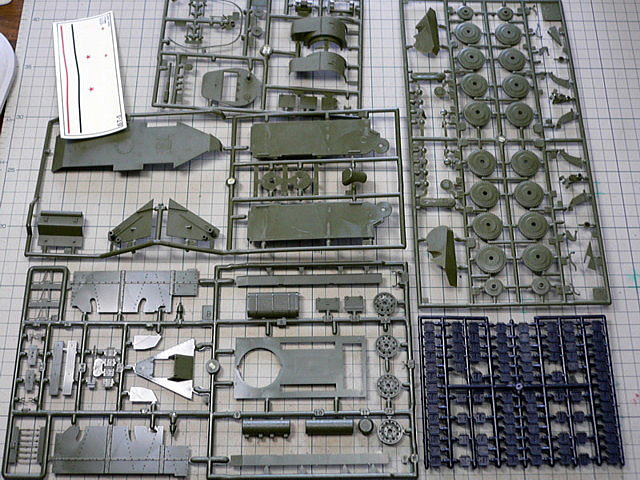 It seems problematic that the mold is rough, and some parts are not well-shaped.
It seems problematic that the mold is rough, and some parts are not well-shaped.
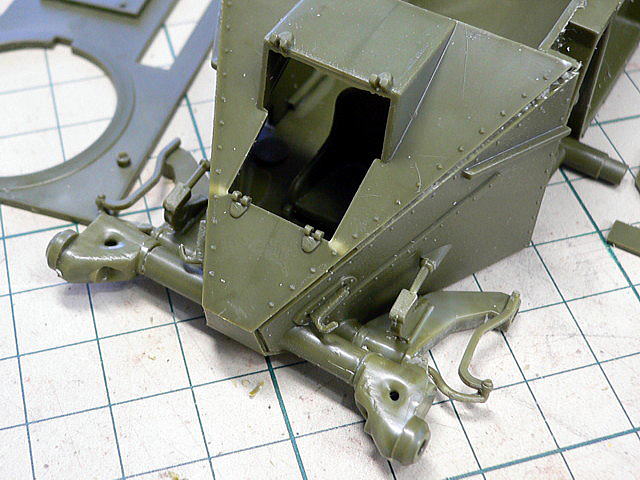 I assembled it without caution, as in the photo. Many parts have a surface sink; a junction was just not fit.
I assembled it without caution, as in the photo. Many parts have a surface sink; a junction was just not fit.
(2007/10/27)
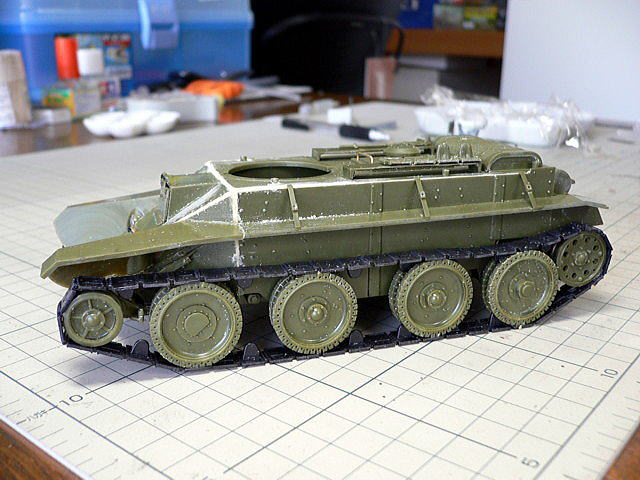 There was a huge gap in the body junction; I fixed it with epoxy putty and light-curing putty.
There was a huge gap in the body junction; I fixed it with epoxy putty and light-curing putty.
(2007/10/28)
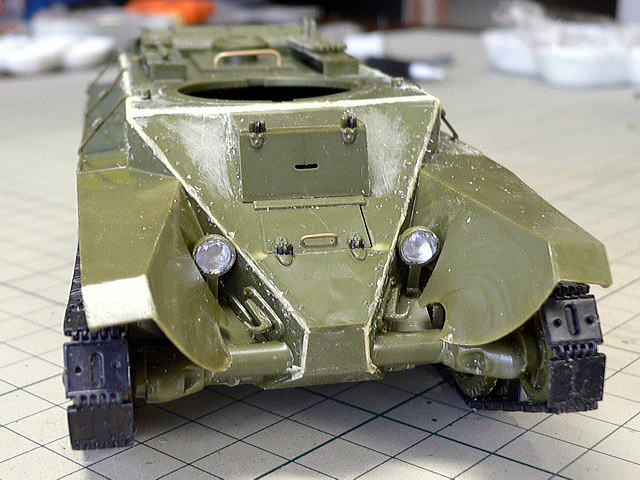 I changed the front, and rear hatch handles to the brass wire and the headlights to clear parts.
I changed the front, and rear hatch handles to the brass wire and the headlights to clear parts.
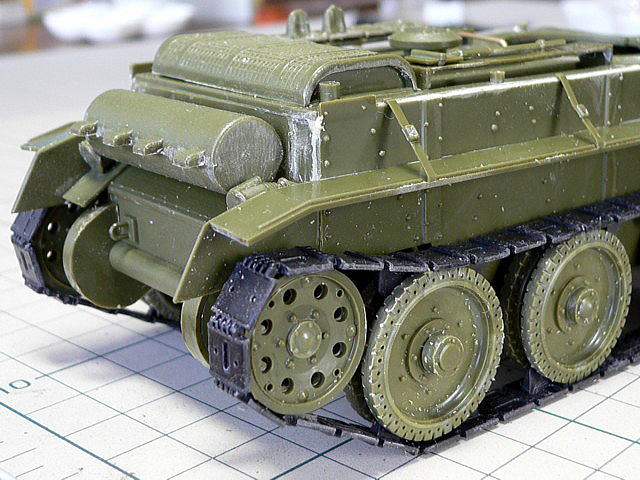 Because the caterpillar was a set of two pieces, the length adjustment was difficult. Length slightly remained. Because there is no other way, I cut one of the parts with nippers at a halfway position, and the loose condition of the caterpillar may just be improved.
Because the caterpillar was a set of two pieces, the length adjustment was difficult. Length slightly remained. Because there is no other way, I cut one of the parts with nippers at a halfway position, and the loose condition of the caterpillar may just be improved.
(2007/10/28)
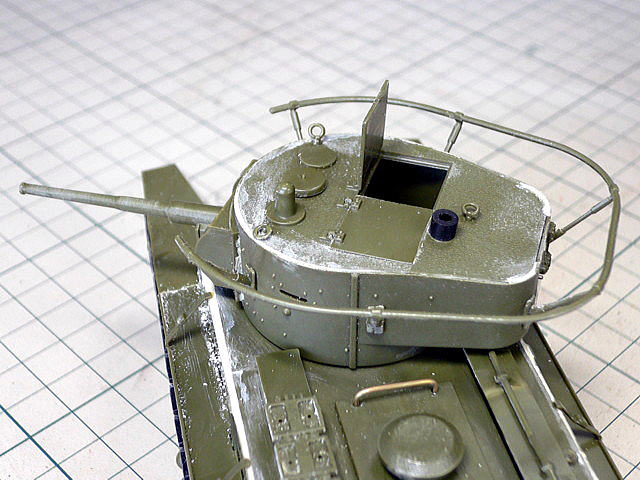 I put up the polyester because it was not in the kit. There are black parts on the upper part of the turret in the actual car photograph on the Internet. Maybe it’s a machine gun mounted on the device?
I put up the polyester because it was not in the kit. There are black parts on the upper part of the turret in the actual car photograph on the Internet. Maybe it’s a machine gun mounted on the device?
(2007/10/28)
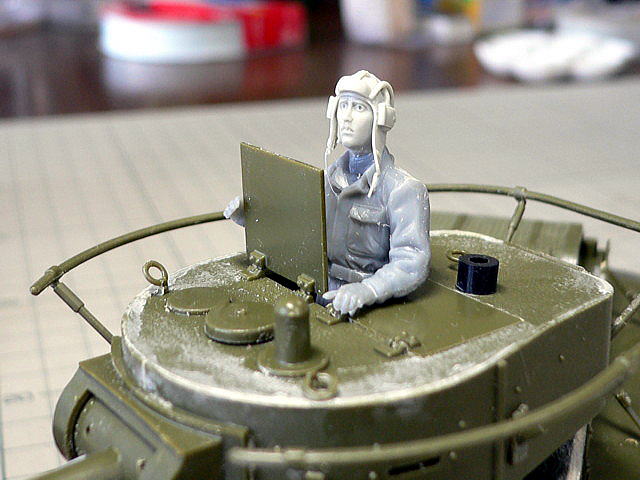 I put the figure in the tank. It is a young crew with a Russian tank cap. The extending runner added the skin band of the cap. It is a worried face.
I put the figure in the tank. It is a young crew with a Russian tank cap. The extending runner added the skin band of the cap. It is a worried face.
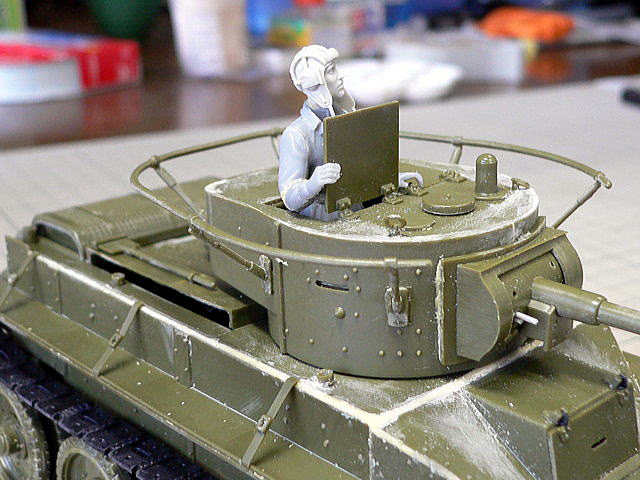 A machine gun is in the actual car photograph next to the turret. I suitably made it from the runner.
A machine gun is in the actual car photograph next to the turret. I suitably made it from the runner.
(2007/10/28)
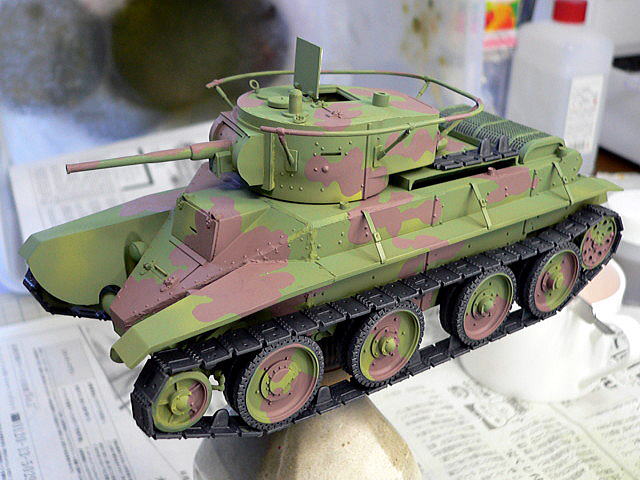 After blowing Russian green with the airbrush, Brown is brush painted.
After blowing Russian green with the airbrush, Brown is brush painted.
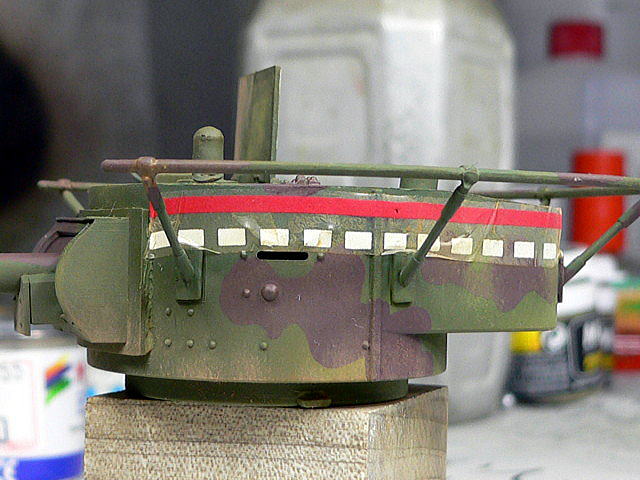 The decal quality was not so good, and I could not fit them on the body. It isn’t easy to fit on the mat surface. Trying to use the decal softer was in vain.
The decal quality was not so good, and I could not fit them on the body. It isn’t easy to fit on the mat surface. Trying to use the decal softer was in vain.
(2007/10/31)
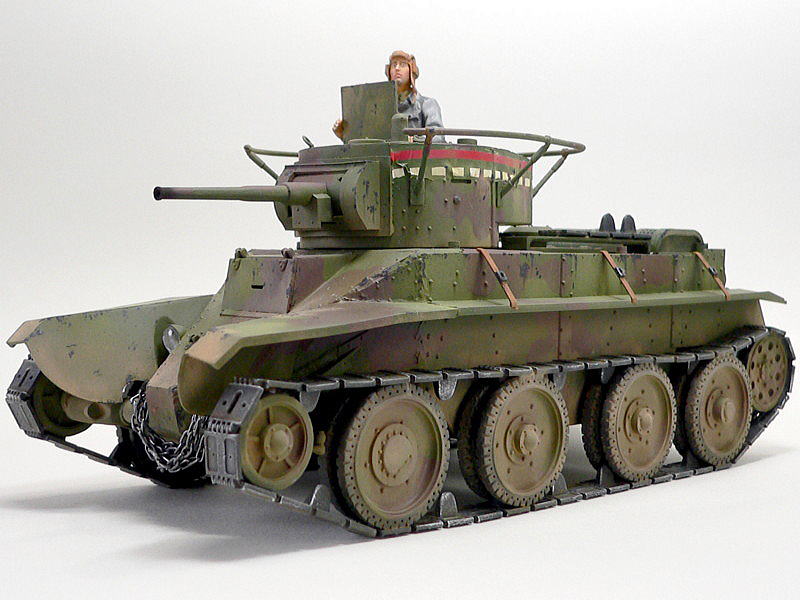 This time, it’s a Soviet light tank BT-5. Engineer John Walter Christie in the United States developed a Christie fast tank. The licensed production right was sold to the Soviet Union for various reasons.
This time, it’s a Soviet light tank BT-5. Engineer John Walter Christie in the United States developed a Christie fast tank. The licensed production right was sold to the Soviet Union for various reasons.
This tank was possibly running without a removable caterpillar on the road at a speed of about 100km. As for replacing T-34, detaching the caterpillar might have been unnecessary on the battlefield.
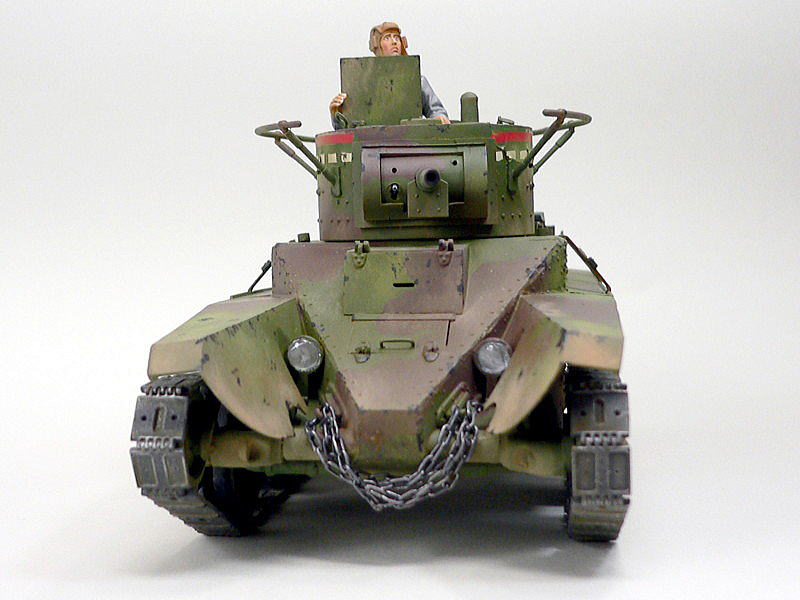 The BT tank frequently appears as a weak enemy in the scene model. When a strong chain, as often seen in the battlefield photograph, is rolled to the front side, it seems strong. I made this tank during the Spanish civil war in 1936. At that time, the tank of a German army that supported the Franco army seemed to have fought hard against 42 calibers of 45mm tank gun power.
The BT tank frequently appears as a weak enemy in the scene model. When a strong chain, as often seen in the battlefield photograph, is rolled to the front side, it seems strong. I made this tank during the Spanish civil war in 1936. At that time, the tank of a German army that supported the Franco army seemed to have fought hard against 42 calibers of 45mm tank gun power.
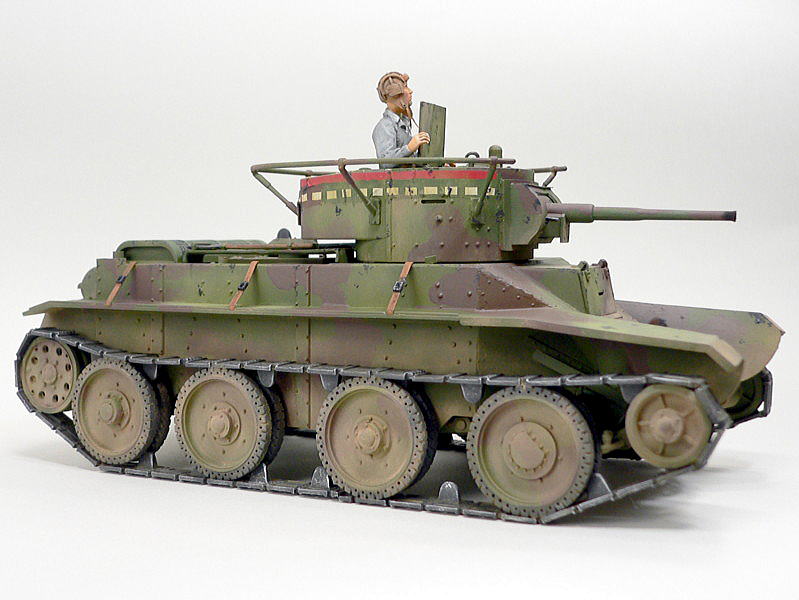 Because a part of molding the trank roller had been buried, I punctured it again in a drill of 1mm.
Because a part of molding the trank roller had been buried, I punctured it again in a drill of 1mm.
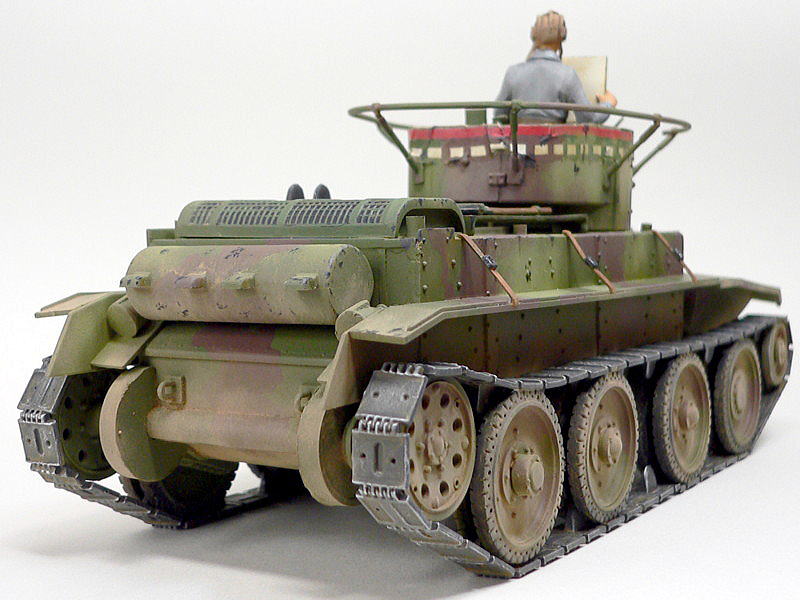 The caterpillar fastness belt was used from the kit. I thinly shaved it down.
The caterpillar fastness belt was used from the kit. I thinly shaved it down.
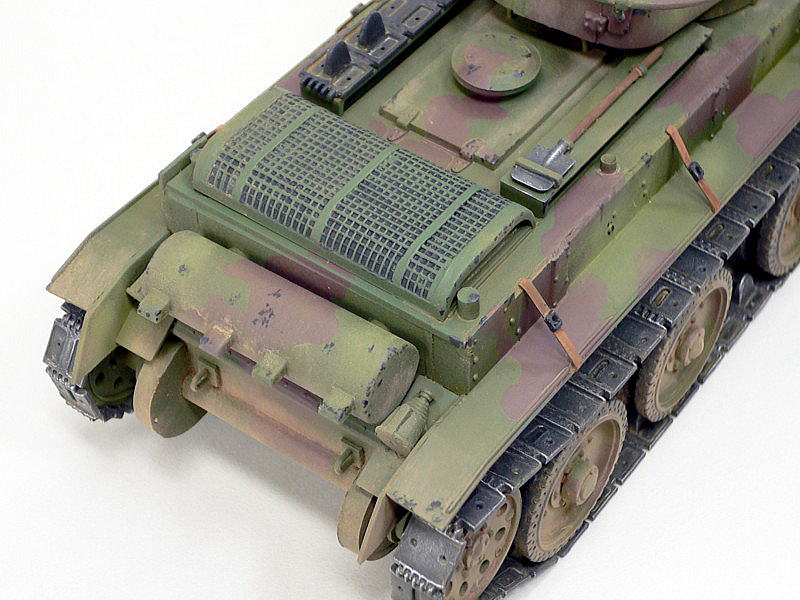 I only painted blacking it this time, though the engine grill was more accurate if I used the photo-etched parts.
I only painted blacking it this time, though the engine grill was more accurate if I used the photo-etched parts.
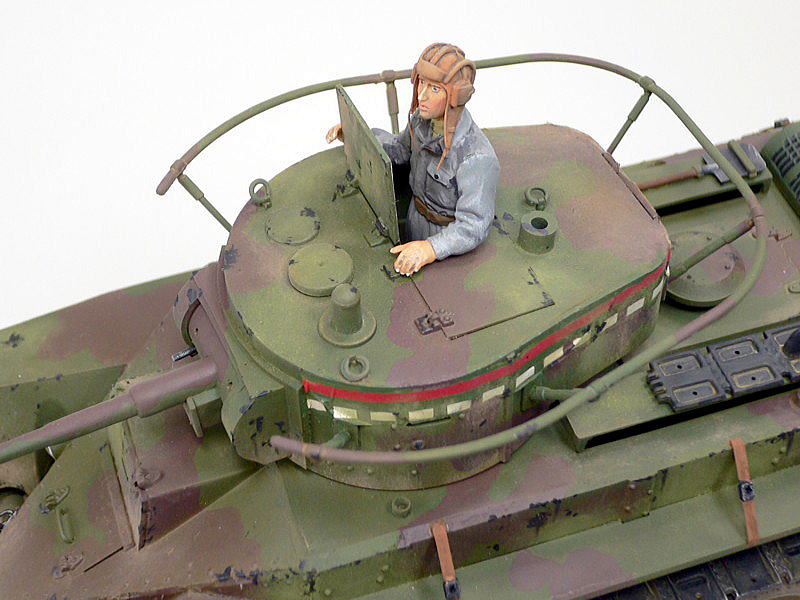 A tattered decal was corrected more or less at the end of the making report. After all, there should be better with a red, white line because of the feature of this marking during a Spanish civil war.
A tattered decal was corrected more or less at the end of the making report. After all, there should be better with a red, white line because of the feature of this marking during a Spanish civil war.
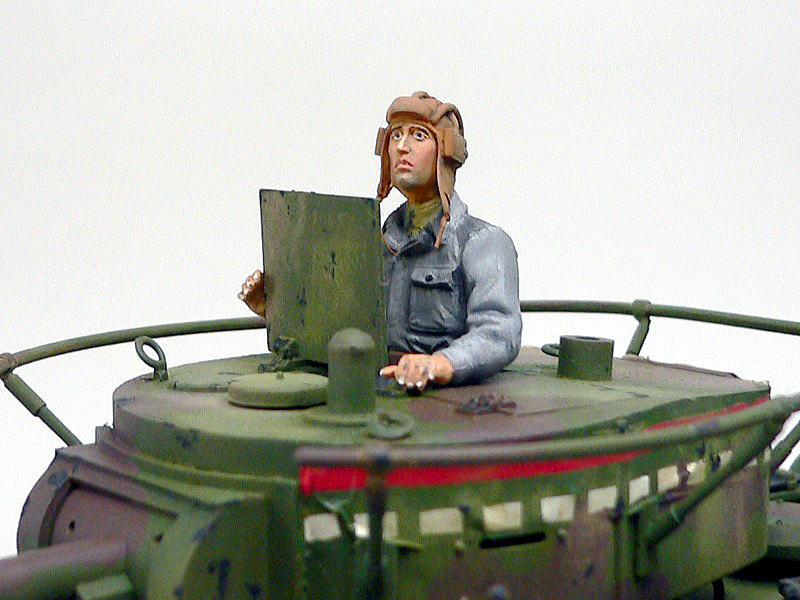 I drew a tank soldier’s eyes a little large. The quality of the resin head is marvelous.
I drew a tank soldier’s eyes a little large. The quality of the resin head is marvelous.
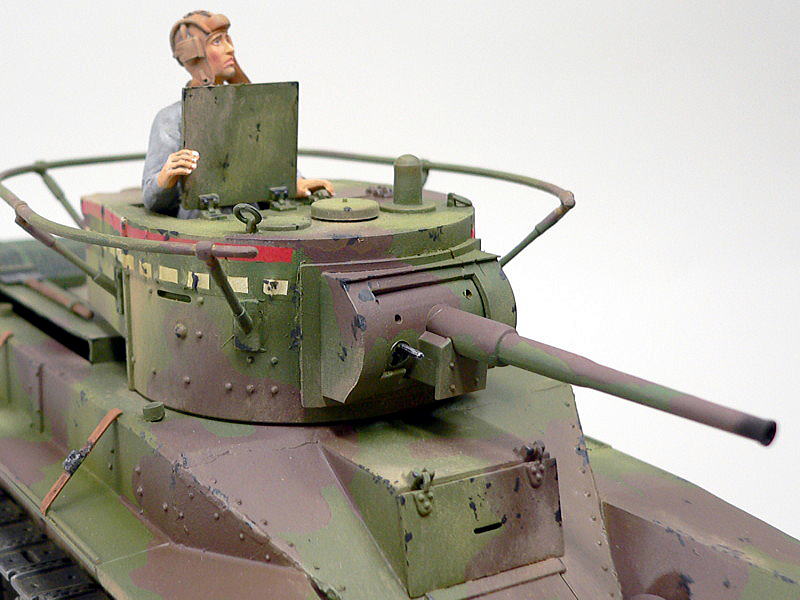 Because the joint of the fore hatch and the hinge were terrible, it was not easy to have installed it. I cut it down and made it by myself with a plastic board.
Because the joint of the fore hatch and the hinge were terrible, it was not easy to have installed it. I cut it down and made it by myself with a plastic board.
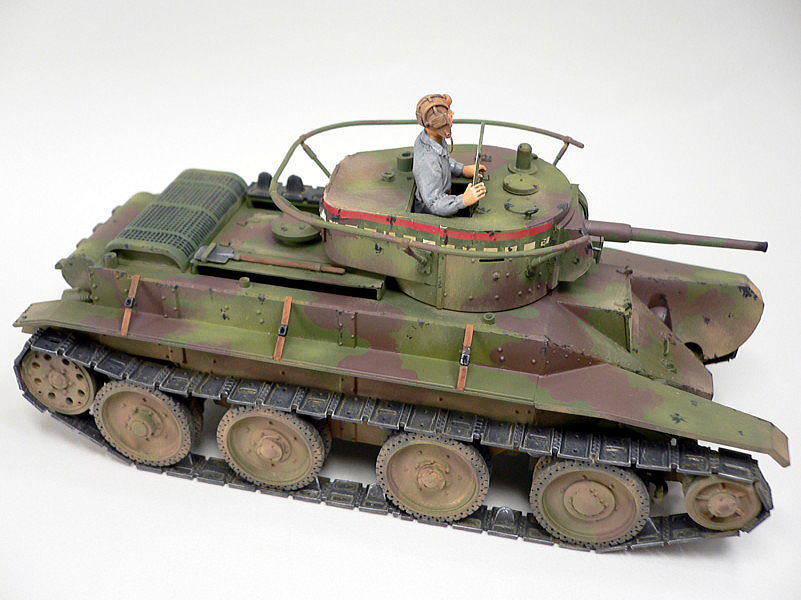 Before assembling, I thought it would be easy to complete because the parts were not so many. But in the process, there were many complex processes. But anyway I could complete it. I especially like this figure very much.
Before assembling, I thought it would be easy to complete because the parts were not so many. But in the process, there were many complex processes. But anyway I could complete it. I especially like this figure very much.
(2007/11/10)



コメント